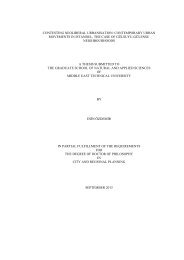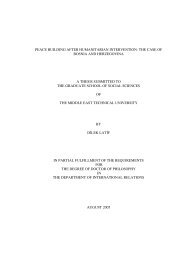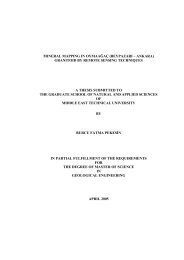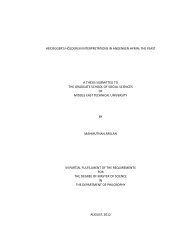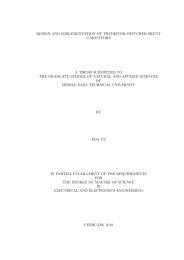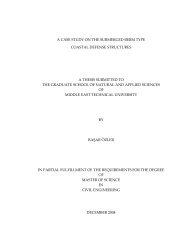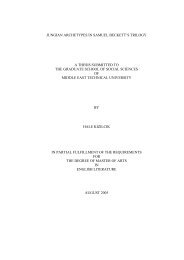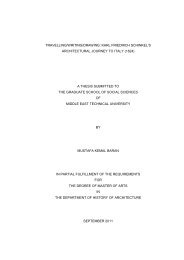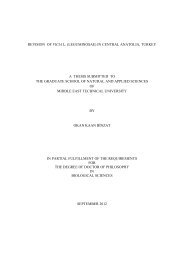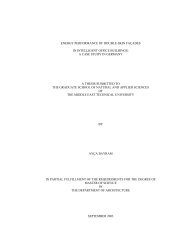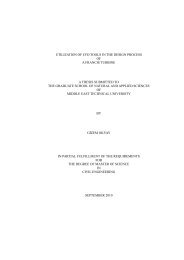View Original - Middle East Technical University
View Original - Middle East Technical University
View Original - Middle East Technical University
You also want an ePaper? Increase the reach of your titles
YUMPU automatically turns print PDFs into web optimized ePapers that Google loves.
institutions in particular times and territories are also part of the overall regulationist<br />
research which is more holistic than methodological individualist. Regulation theory<br />
as such is an open institutionalism which nevertheless espouses, ‘institutions produce<br />
a social dynamics and hence institutions are unintelligible without reference to a<br />
social dynamics’(Favereau 2002:317). One final contrast between neoclassical theory<br />
and the theory of capitalist regulation is about their concepts of time. The neoclassical<br />
market ethos tritely excoriates any concept of time in which time would be informal<br />
and/or differential. Here is another closed abstraction. Neoclassical concept of time<br />
is an abstraction from nuances and caesurae between and along concrete time.<br />
Regulationists on the other hand agree with the evolutionary and institutionalist<br />
economics’ time-concept in that socio-economic change is largely ‘path-dependent<br />
and irreversible’(Jessop 1997:295).<br />
3.1 Institutions Matter<br />
Those paradigms that resort to thematic institutionalism mostly either have been<br />
methodological and/or ontological individualist or rehearsed concomitant forms of<br />
holism. Thematic institutionalism for individualists often touch upon the analysis of<br />
the prolusory design and macro patterns of institutions in terms of individualist<br />
microfoundations of social phenomena. The effort is ultimately about a further<br />
imprimatur of these microfoundations’ explanatory pep upon nascent institutions.<br />
Thematic institutionalism in holistic paradigms on the other hand strictly analyses the<br />
institutions and institutional changes on the basis of the effects which stem from<br />
broader societal mechanisms. Briefly, this model of institutionalist makeover is<br />
scarcely a substantial change of mindset in each credo. The thematic makeover is<br />
about the fact that both holistic and individualist methods of analsis further undersell<br />
the unknowns and the mesolevel of institutional procedures with a heavy degree of<br />
individualism or holism. It is in short a form of functionalist-poaching in reseach.<br />
Methodological institutionalism circumscribes the institutional nexus as a particularly<br />
prolific window of theoretical excursion albeit alongside other explanatory models<br />
and polemicises certain heretofore epistemological, methodological and ontological<br />
51



